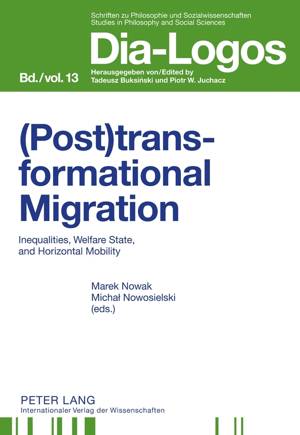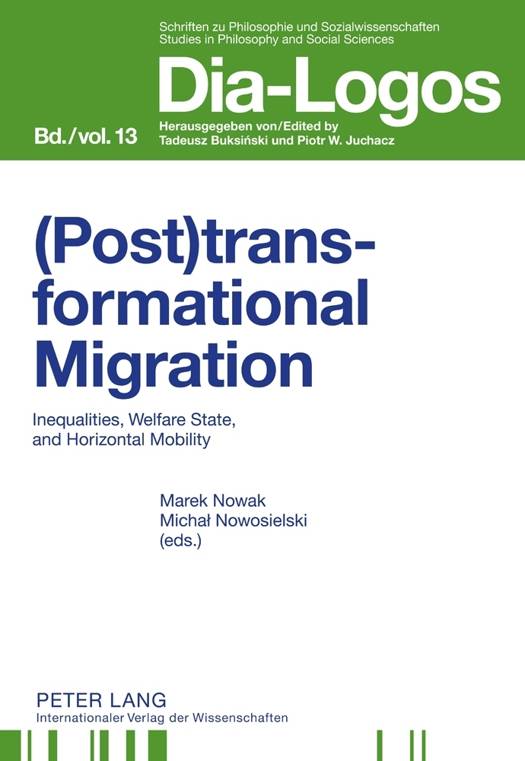
Bedankt voor het vertrouwen het afgelopen jaar! Om jou te bedanken bieden we GRATIS verzending (in België) aan op alles gedurende de hele maand januari.
- Afhalen na 1 uur in een winkel met voorraad
- In januari gratis thuislevering in België
- Ruim aanbod met 7 miljoen producten
Bedankt voor het vertrouwen het afgelopen jaar! Om jou te bedanken bieden we GRATIS verzending (in België) aan op alles gedurende de hele maand januari.
- Afhalen na 1 uur in een winkel met voorraad
- In januari gratis thuislevering in België
- Ruim aanbod met 7 miljoen producten
Zoeken
(Post)Transformational Migration
Inequalities, Welfare State, and Horizontal Mobility
€ 68,95
+ 137 punten
Omschrijving
Perceived inequalities, such as the lack of a proper job or bad living conditions, can play the role of push factors that make people migrate. Apart from this, there are studies which focus more on relative deprivation, exacerbated by inequality, as a basic determinant of people's mobility, and also some are focused on the influence of income inequality on migration. Such «structural conditions» are only a part of the story of migration, particularly because differences and inequalities are social facts, elements of the universal shape of modern open societies. Ultimately inequality, as more general departure point, can't be merely an element of explanation, and it is important to remember that not only do «objective» social differences and the inequalities caused by them foster migration behaviour, but so do their social perceptions.
Specificaties
Betrokkenen
- Uitgeverij:
Inhoud
- Aantal bladzijden:
- 302
- Taal:
- Engels
- Reeks:
- Reeksnummer:
- nr. 13
Eigenschappen
- Productcode (EAN):
- 9783631617564
- Verschijningsdatum:
- 13/04/2011
- Uitvoering:
- Hardcover
- Formaat:
- Ongenaaid / garenloos gebonden
- Afmetingen:
- 148 mm x 210 mm
- Gewicht:
- 489 g

Alleen bij Standaard Boekhandel
+ 137 punten op je klantenkaart van Standaard Boekhandel
Beoordelingen
We publiceren alleen reviews die voldoen aan de voorwaarden voor reviews. Bekijk onze voorwaarden voor reviews.








